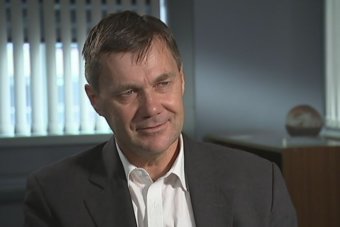WA election: Micro party preference deal could take five seats in Upper House
Posted
Five micro parties have struck a preference deal that could deliver as many as five Upper House seats in the WA election.
Organised by the man dubbed "the preference whisperer", Glenn Druery, the deal sees Family First, Liberal Democrats, Flux the System, Fluoride Free and Daylight Saving Party preference each other for Upper House seats.
Mr Druery said he was pleased with the deal and he was "very happy that Western Australia will see an outbreak of democracy".
"I've been speaking to minor parties for many weeks, some of them for much longer than that ... it is a lot of work to put something like this together, a real lot of work," he said.
"I would suggest that a few [minor parties] will probably be having a very big smile on their faces on March 11."
Mr Druery was instrumental in helping minor parties strike deals in the 2013 Senate election.
The alliance saw candidates from single-interest parties such as the Australian Motoring Enthusiasts Party and the Australian Sports Party secure seats, despite receiving less than 1 per cent of the primary vote.
Under Australia's proportional voting system, which is used in the Senate and Western Australia's Upper House, candidates who obtain a certain proportion, or quota, of the primary vote in the first count are immediately elected.
Surplus votes from elected candidates are transferred to the candidates who were numbered second on the papers, but at a reduced value.
The system allows minor parties to form blocs, where they preference each other, thereby swelling their chance of winning a seat, even if they campaign on extremely disparate platforms, and do not receive many primary votes.
Anti-fluoride, pro-daylight savings parties best-placed
 Photo:
The Fluoride Free party in Western Australia, wants fluoride, which prevents tooth decay, removed from the public water system. (Fluoride Free WA)
Photo:
The Fluoride Free party in Western Australia, wants fluoride, which prevents tooth decay, removed from the public water system. (Fluoride Free WA)
Political analyst William Bowe said as a result of the swaps, Fluoride Free could up pick up a seat in East Metropolitan, the Liberal Democrats in the Agriculture region, Flux the System in the Mining and Pastoral, Family First in North Metropolitan and Daylight Savings Party in South Metropolitan.
"They have all entered a deal with each other where each gets a region where they are the top dog," Mr Bowe said.
"It is plausible that you could get five micro parties ... on top of three won by One Nation.
 Photo:
Flux WA are one of the parties that may secure seats in the Upper House without getting much of the primary vote. (Supplied: Flux WA)
Photo:
Flux WA are one of the parties that may secure seats in the Upper House without getting much of the primary vote. (Supplied: Flux WA)
"Probably one or two of them will fail to come off, but it is certainly interesting."
Mr Druery believes the Fluoride Free party and the Daylight Savings Party had the most chance of picking up seats.
Campaign manager for Flux the System Daithí Gleeson insisted the party was not aligned to one particular party.
"We've made our preferences arrangements based on electoral success, and so our preference orders vary across all regions according to the statistical chances of getting us elected," he said.
Liberals, Nationals to lose out: Druery
Mr Druery believes the Liberal Party are likely to lose five Upper House seats and Nationals will halve their representation.
"I think one thing that could impact the minor parties' success or not, will be just how much the Liberal Party vote falls off because of their deal with One Nation," he said.
"If the Liberals vote falls off more than we expected then there is a very good chance that more minor parties might be elected."
Mr Druery said One Nation was not in any way part of the deal but Mr Bowe believes that is unlikely to be the case.
"One Nation look like they are mostly playing their own game, but they have put Flux second [in] the mining and pastoral region which is exquisitely coincidental if they are not part of the deal," Mr Bowe said.
He said the deal was good news for Labor, who could potentially strike a deal with the crossbench, compared to the alternative of One Nation alone holding the balance of power.
"If Labor can get to a situation where they can cobble together majorities in the Upper House by getting the Greens and then they've got five micro parties who don't have much to do with each other ideologically ... it becomes possible for them," he said.
"There are other pathways to cobbling together a majority, even if it is really chaotic and involves herding a lot of cats, it is still better than the alternative."
Topics: government-and-politics, elections, wa








